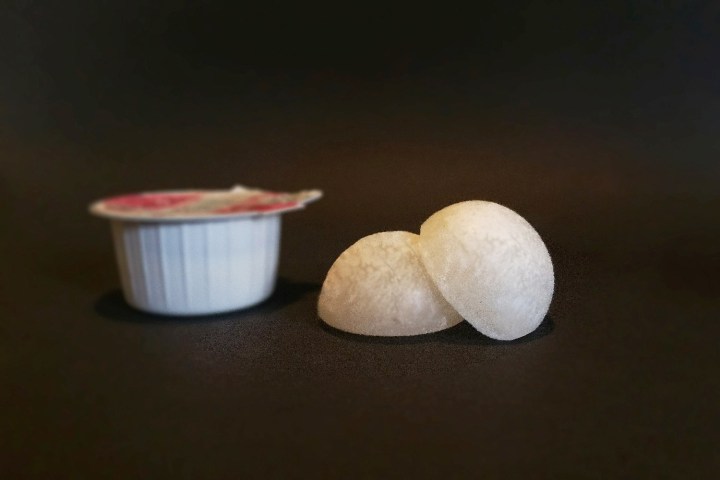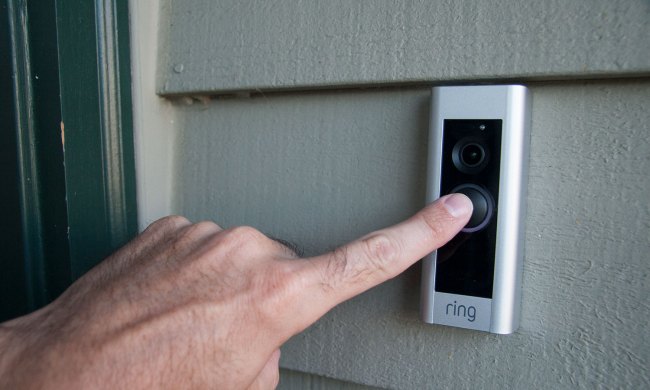
The milk pods are essentially small containers with a hard and stable shell, which contains liquid milk or condensed milk. The shell is made of a crystalline material like sucrose or a sugar substitute. When the capsules are added to a hot liquid, the coat quickly dissolves and the liquid filling is released into the drink with a minimum of fuss — and, more importantly, no waste.
“Conventional pre-portioned plastic [containers] are applied in a variety of sectors for packaging coffee-cream or condensed milk because of their handy size,” Martha Wellner, one of the researchers on the project, told Digital Trends. “However, they have a great disadvantage as the opening process leads to an unclean handling. The first main advantage of our product is that it avoids the splashing and spilling as no opening is necessary. Furthermore it contributes to an environmental waste reduction as the dissolvable capsule replaces conventional plastic [packaging].”
At present, the hard shell leaves behind a sweet taste: perfect if you like sugar in your coffee, not so great if you don’t. However, the researchers may be able to tweak their creation in subsequent iterations to result in no additional flavoring.
The team’s milk pods can be kept at room temperature for up to three weeks, with no negative effects. “We have discovered no changes so far,” Wellner said, regarding the milk quality after the pod-making process. The researchers also say that additional drinks, such as fruit juice concentrate, may also be stored in the same way.
A paper describing this research was recently published in the journal Chemical Engineering & Technology. With this and the various smart expiration labels and new approaches to pasteurization we’ve covered as of late, who knew there was so much innovation going on in the milk world?


